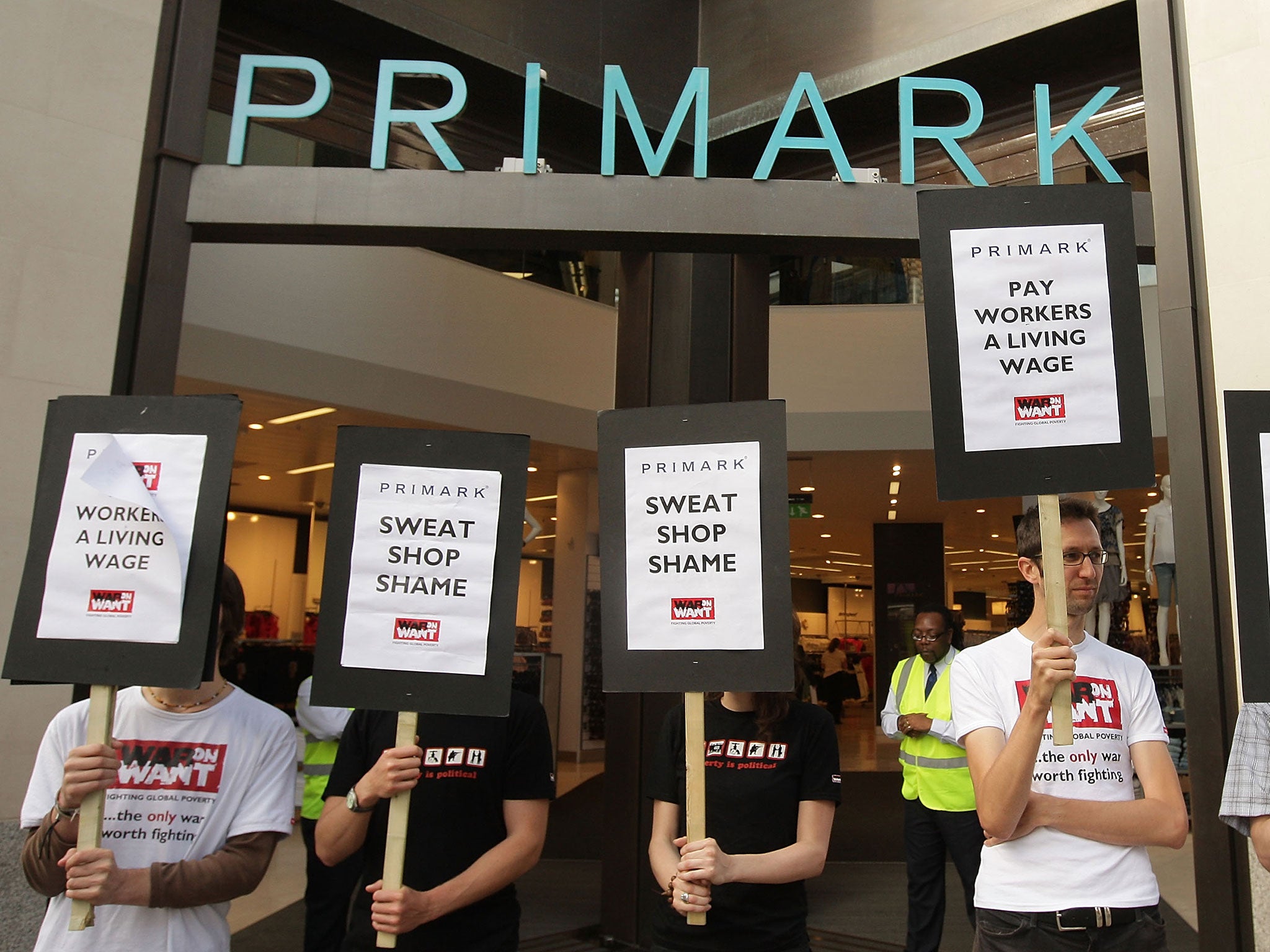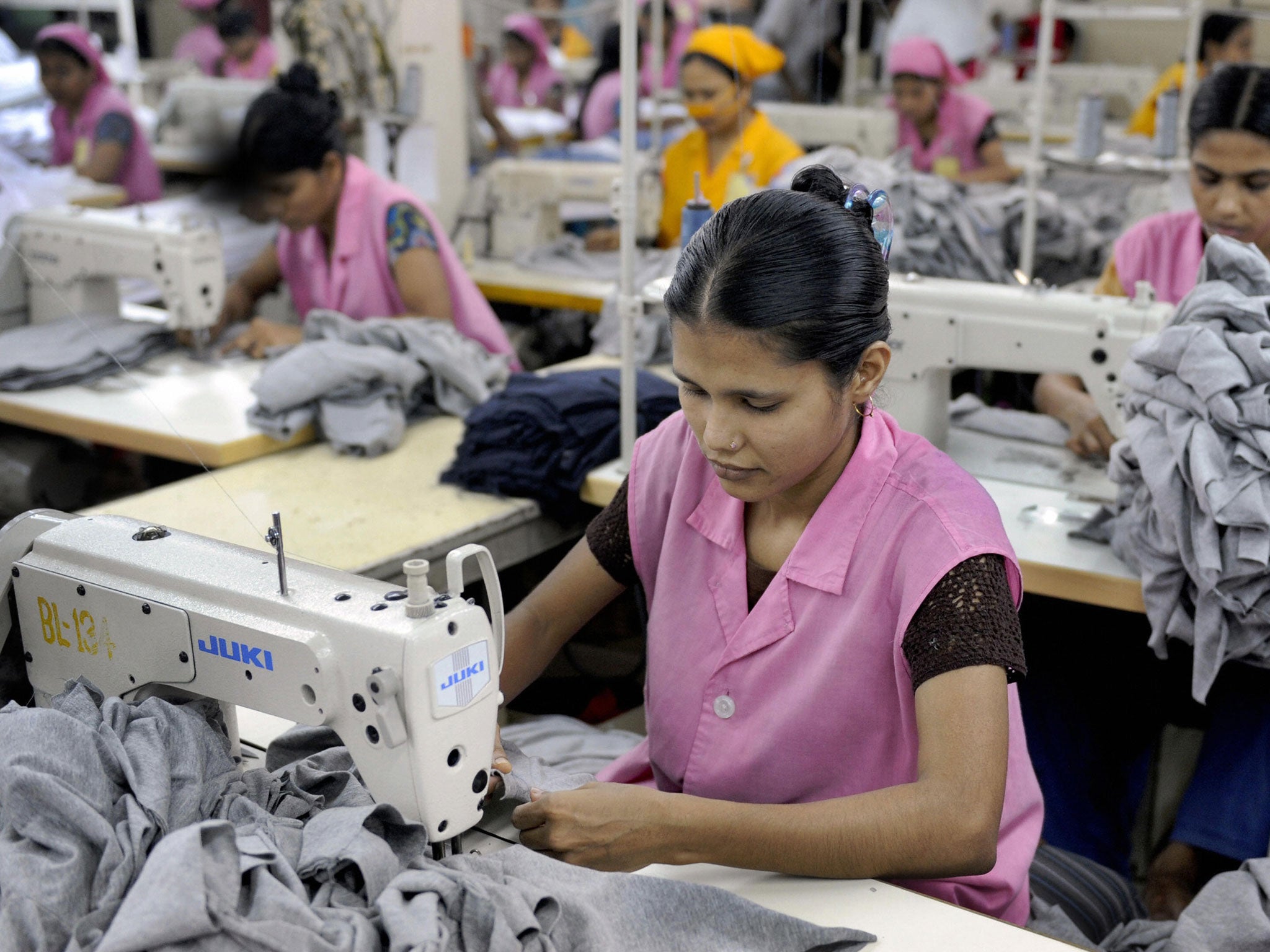Primark denies forced labour allegations as more 'cry for help' labels emerge
Items bought in Swansea and Belfast have been found with notes
Your support helps us to tell the story
From reproductive rights to climate change to Big Tech, The Independent is on the ground when the story is developing. Whether it's investigating the financials of Elon Musk's pro-Trump PAC or producing our latest documentary, 'The A Word', which shines a light on the American women fighting for reproductive rights, we know how important it is to parse out the facts from the messaging.
At such a critical moment in US history, we need reporters on the ground. Your donation allows us to keep sending journalists to speak to both sides of the story.
The Independent is trusted by Americans across the entire political spectrum. And unlike many other quality news outlets, we choose not to lock Americans out of our reporting and analysis with paywalls. We believe quality journalism should be available to everyone, paid for by those who can afford it.
Your support makes all the difference.Primark has denied allegations of forced labour at its factories and claimed it “knows its responsibility” to workers as more “cry for help” labels emerge.
A £10 dress bought in a branch of the low-cost fashion chain in Swansea contained a label sewn with the message “forced to work exhausting hours” and a cheap top from the same store read: “Degrading sweatshop conditions”.
Another woman who purchased a pair of trousers from Primark in Belfast in 2011 claimed to have recently found a handwritten note from China.
She sent it to Amnesty International, who said the note, wrapped around a prison identity card, pleaded for help from the international community and condemned the Chinese government for alleged human rights violations.
The writer claimed to be a prisoner in the Xiang Nan Prison in China’s Hubei Province and forced to work 15 hours a day.

A statement from Primark said it was “clear” that the incidents arose from merchandise bought several years ago.
The dress and top from Swansea were made in different countries, although Primark did not specify which, but appeared to be of “a very similar type”, a company spokesman said.
They were on sale in 2013, whereas the trousers bought in Northern Ireland were last ordered by Primark in 2009.
The company claimed the factory where the trousers were made has been inspected nine times by its “ethical standards team” since 2009 and no prison or evidence of forced labour was found.
A spokesman for Primark said: “Despite growing suspicions in relation to the origin of the labels and the considerable time delay since the garments were bought, Primark knows its responsibilities to the workers in its supply chain and has already started detailed investigations.”
The retailer requested the return of the three items and investigations have started.
A statement said 10,000 factory audits have been carried out at suppliers since 2009 and said such incidents are treated “very seriously”.

Patrick Corrigan, the Northern Ireland programme director for Amnesty International, called on the government to amend its Modern Day Slavery Bill to up controls on company supply chains.
“It is a horrific tale,” he added. “It’s very difficult to know whether it's genuine, but the fear has to be that this is just the tip of the iceberg.”
It is the latest ethical setback for the retailer since the Rana Plaza factory disaster in 2013, in which more than 1,000 people died in a tragedy that raised questions about the way cut-price clothing for Primark and other Western clothing retailers was made.
Whatever the outcome of the investigation into the labels, the scandal has made many shoppers question the true price of discount fashion.
Rebecca Gallagher, 25, who bought the dress in Swansea, told the South Wales Evening
Join our commenting forum
Join thought-provoking conversations, follow other Independent readers and see their replies
Comments